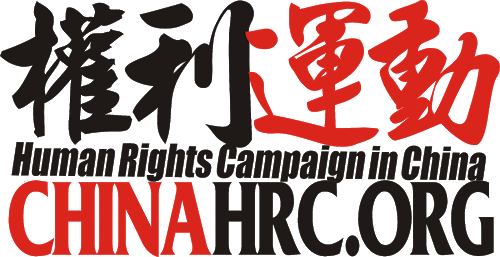3月12日法国将中华民国常驻联合国教科文组织代表团从原中华民国驻法国巴黎的大使馆内赶出(按:1964年1月法国就和中共国建交并断绝同国民党政权的外交关系),这条消息引起了伦敦华人界的关注,原因之一是在该代表团工作的郭有守3月初访问瑞士时突然失踪。伦敦的华人传言郭已遭中共绑架,正被劝说“弃暗投明”返回大陆。Timms认为华人总是想象力丰富,郭失踪的原因可能未必这么复杂。郭在英国的女儿正在申请英国国籍,郭很喜爱的儿子马上要到美国读书。所以,郭很可能不会自愿返回中国大陆。(见1966年3月18日英国外交部远东司D.K. Timms致信英国驻法国巴黎大使馆,并附送英国驻中国北京代办处、驻台湾淡水领事馆、驻瑞士伯尔尼大使馆和日内瓦总领事馆)
1966年4月9日的《人民日报》刊登了新华社消息《蒋帮驻比利时“大使馆参事” 郭有守宣布起义回到祖国》,并公布了郭有守所发表的声明(报道全文见附件)。
1966年4月13日,英国驻华代办处的Alan Donald报告他在北京获得的关于郭有守的信息:某法国驻华外交官住在北京饭店,他在巴黎时就认识郭,在中共公开郭回国消息之前的一周内他就多次在北京饭店见到郭。郭看起来很尴尬,但在初见时还是打了招呼,后来就躲着他了。郭是四川人,早年在法国留学(按:据说是1920年代获巴黎大学经济学博士)并回国,过去20年来他都在巴黎工作,法国外交部对他很熟悉。郭是艺术鉴赏家,生活很有情调,举办的酒会很有趣、参加者也多。虽然他同法国官方公务交往频繁,但法国外交部对他的政治倾向早有怀疑。很多人都知道他爱挣些私房钱(这也可以理解,因为国民党政权经常不按时给驻外使节发工资)而且喜欢女人。郭的妻子早就回到大陆(按:郭妻杨云慧是杨度之女),据说是个母老虎,显然郭不是被他的妻子吸引回国的。法国人还说郭的女儿嫁给一个斯拉夫人,她自己是核物理学家,曾在法国和英国的相关研究机构学习和工作。郭对他这个女儿很自豪,法国人猜测他家对原子能的兴趣可能使得郭对中国核试验成功很兴奋。法国人还说两年前郭有守到台湾时和一位高官大吵了一通,或许这是郭对蒋介石政权不满的开始(按:实情恐非如此,郭可能自1950年代就为中共工作了)。另外,Donald认为中共公开郭回国的消息很可能是因为他对中共的情报价值不再重要了(按:这个判断应该是对的)。
郭有守(1901-1978),字子杰,四川资中人,其生平和经历可参见其女郭安东2009年11月11日发表在中共上海市委统战部所办的上海统一战线网上的文章《我的父亲郭有守》,和許禮平2014年1月26日发表在香港《苹果日报》上的文章《奇人郭有守》。值得注意的是,郭安东说郭有守是1965年圣诞节前被瑞士警方发现为中共工作而遭拘捕,然后到中共国驻法国大使馆避难,而英国外交部的Timms说郭是1966年3月出到瑞士时失踪的,这两者时间上有很大的差异。据说郭有守回大陆后是由情报部门(文革期间,中央调查部合并到总参谋部第二部之下)负责安置的,至今在网上很少有相关资料,恐怕要查阅台湾、瑞士和法国方面的资料才能知道郭有守回到大陆的确切情节。
~~~~~~~~~~~~~~~~~~~~~~~~~~~~~~~
CONFIDENTIAL
Office of the British
Charge d’Affaires
peking.
(1822/66 “S”) 13 April, 1966.
Dear John,
David. Timms wrote on 18 March to Philip Mansfield in Paris about the disappearance of Kuo Yu-shou (Y.S.Kuo) and I have since seen McKeever’s letter of 1 April.
2. I am enclosing the cutting from the N.C.N.A. reporting his “return to the fatherland” and giving the text of his statement published on 8 April. You will see that his description is “Counsellor of the Embassy” in Belgium of the Nationalist Chinese, despite the years he spent on the UNESCO delegation in Paris.
3. One of our French colleagues, who lives in the Peking Hotel and who knew Kuo from his time in Paris, has told me that he saw Kuo on several occasions in the hotel from about a week before the news of his return was released. Kuo appeared embarrassed, but exchanged a greeting on the first encounter. Later, he took to dodging behind pillars to avoid any further discussion.
4. Our French colleague has given us the following background which may supplement that contained in Timms’ letter of 18 March. Kuo hails from Szechwan and was originally one of the group of “returned students” from Prance. He had served in Paris for about twenty years or so and was well known to the Quai as an art connoisseur and a gay and sympathetic person. His parties were amusing and well attended. For some time, however, the Quai were suspicious of Kuo’s political leanings, though he frequently calledon French officials on business. He had a reputation for not being averse tomaking a little money on the side (perhaps understandably because pay in the Nationalist Chinese Foreign Service is apparently somewhat erratic!) and for having an eye for women. His wife, who remained in China when her husband left the mainland, is believed to be a tough old dragon and presumably it was not her blandishments which brought him back!
5. Our French source mentioned that Kuo’s daughter is married to a Yugoslav, and is a nuclear physicist who has done some training at the French institution at Sacle and at British nuclear research institutions. Kuo is immensely proud of the daughter and our French colleague supposed that the family interest in nuclear matters made the successful Chinese nuclear tests appear specially significant to him and proof of China’s rising prestige and vitality. We were also told that Kuo returned to Taiwan about two years ago when he had a major row with a highly placed official. This may have marked the beginning of his dissatisfaction with the Chiang Kai-shek regime.
6. Since his return, Kuo has met Wang Ping-nan and Hsieh Li, the Director of the West European Department, which suggests that Kuo’s usefulness lies in the background he can give the Chinese on West European affairs. It occurs to us, however, that the real reason for his return and the publicity may be that Kuo has been for some of the time, at least, an agent who for one reason or another has outlived his usefulness to the mainland regime.
I am sending copies of this letter with enclosure to McKeever in Tamsui, Mansfield in Paris and to the Chancery at Berne. I enclose two spare copies of the letter in case you wish to pass it on elsewhere.
Yours ever
Alan Donald
(A.E. Donald)
(to) J.B. Denson, Esq., O.B.E.,
Far Eastern Department,
FOREIGN OFFICE.
出处:英国外交部档案FO_371_187061






